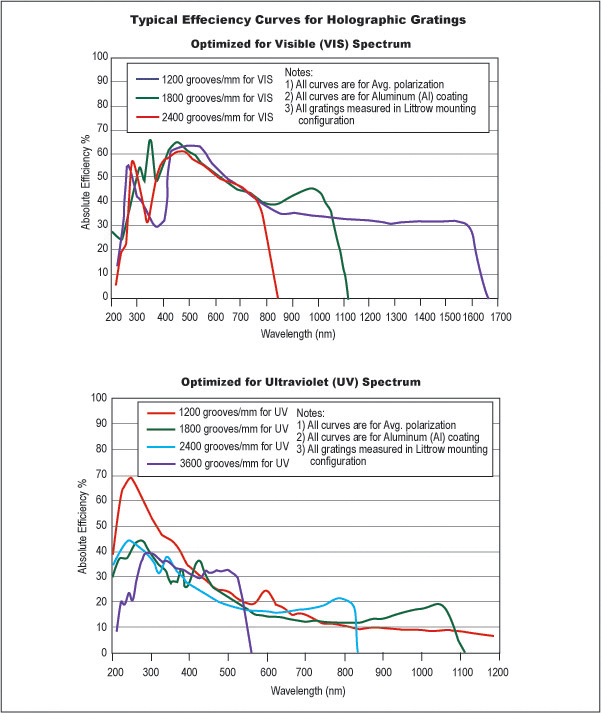
Holographic gratings are formed by an interference fringe field of two laser beams whose standing wave pattern is exposed to a polished substrate coated with photoresist. Processing of the exposed medium results in a pattern of straight lines with a sinusoidal cross section.
Holographic gratings produce less stray light than ruled gratings. They can also be produced with up to 3600 grooves per millimeter for greater theoretical resolving power. Due to their sinusoidal cross section, holographic gratings cannot be easily blazed and their efficiency is usually considerably less than a comparable ruled grating. There are, however, special exceptions which should be noted. When groove spacing to wavelength ratio is near one, a holographic grating has virtually the same efficiency as the ruled version. Also, a holographic grating with 1800 grooves per millimeter has the same efficiency at 500nm as a blazed ruled grating. Holographic master gratings are replicated by a process identical to that used for ruled gratings.
Handling Gratings: Gratings require special handling, making them prone to fingerprints and aerosols. Gratings should only be handled by the edges. Before attempting to clean a grating, please contact us.

or view regional numbers
QUOTE TOOL
enter stock numbers to begin
Copyright 2024, Edmund Optics Singapore Pte. Ltd, 18 Woodlands Loop #04-00, Singapore 738100
California Consumer Privacy Acts (CCPA): Do Not Sell or Share My Personal Information
California Transparency in Supply Chains Act